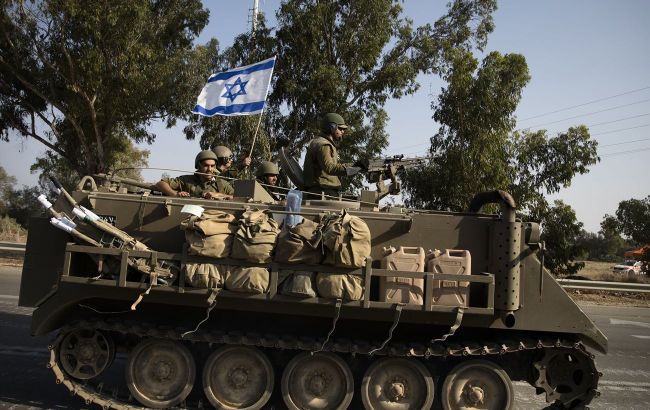Israel takes control of strategic corridor on Gaza Strip's border with Egypt - AP
 The Israeli army has captured a corridor that Hamas used for smuggling (photo: Getty Images)
The Israeli army has captured a corridor that Hamas used for smuggling (photo: Getty Images)
The Israel Defense Forces have taken control of the strategic Philadelphi Corridor along the Gaza Strip's border with Egypt to block Hamas smuggling tunnels and completely destroy the terrorist group, according to AP.
An official, speaking on condition of anonymity, stated that Israel informed Egypt about the capture of the corridor. The military discovered around 20 tunnels, including previously unknown ones, as well as 82 access points to these tunnels. It is unclear whether these tunnels are currently in use.
The corridor is part of a larger demilitarized zone along the entire Israel-Egypt border. According to the 1979 peace treaty between the countries, each side is allowed to station only a small number of troops or border guards in this zone, although this number can be altered by mutual agreement. At the time of the accord, Israeli troops controlled Gaza, until Israel withdrew its forces and settlers in 2005.
The narrow corridor, about 100 meters (yards) wide in some sections, spans a 14-kilometer stretch of the border with Egypt from the Gaza Strip and includes the Rafah crossing point, through which Palestinians enter Egypt. Since Hamas took over Gaza in 2007, the group has had full control of the border.
However, Tel Aviv claims that the corridor is riddled with tunnels used to supply weapons and other goods to Hamas, despite the years-long blockade imposed by Israel and Egypt. The smuggling tunnels were dug under the border between the Gaza Strip and Egypt to circumvent the Israeli-Egyptian blockade imposed after Hamas came to power.
"The Philadelphi Corridor served as the oxygen line of Hamas through which Hamas carried out weapons smuggling into Gaza on a regular basis," said Israel’s military chief spokesperson, Rear Adm. Daniel Hagari.
The capture of the Philadelphi Corridor could complicate Israel's relations with Egypt, which has complained about the Israeli advance towards its border. Cairo asserts that any increase in troops in the strategic border zone would violate the peace agreement between the countries.
Limited operation in Rafah
Meanwhile, Israel has deepened its incursion into the city of Rafah. Military officials reported that on Tuesday, May 28, the fifth brigade, consisting of several thousand soldiers, joined the forces operating in the city.
An Israeli military official noted that Israel has also taken tactical control of Tel al-Sultan, a district on the northwestern outskirts of Rafah. However, he stated that the incursion into the city remains limited in scope and scale.
White House National Security Council spokesperson John Kirby stated that the capture of the Philadelphi Corridor would correspond to a limited ground operation, about which Israeli officials informed President Joe Biden's team regarding the city of Rafah.
"When they briefed us on their plans for Rafah it did include moving along that corridor and out of the city proper to put pressure on Hamas in the city," Kirby said.
Incident with a refugee camp in Rafah
The Israeli army continues its offensive operation in the southern Gaza Strip. Earlier, the International Criminal Court had banned the offensive to preserve civilian lives, but Tel Aviv has ignored this decision.
On May 26, Hamas launched missiles from Rafah towards central Israel. In response, the IDF struck, resulting in the elimination of commanders of the terrorist group.
However, Israeli bombs fell near a refugee camp. A fire broke out at the impact site, resulting in the deaths of over 40 Palestinians.
Initial investigation results suggested that the cause of the fire at the camp in Rafah could have been a secondary detonation.

